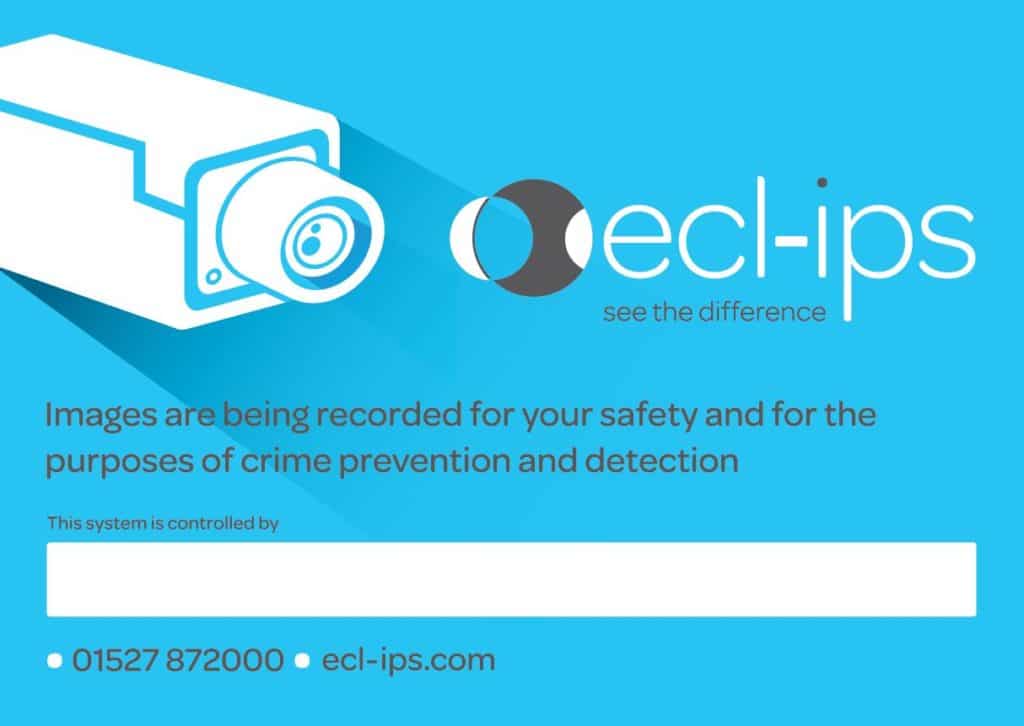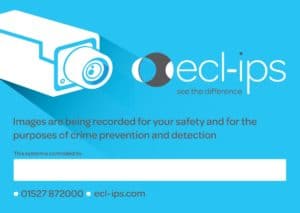As an established CCTV installer with NSI Gold accreditation, Ecl-ips is committed to compliance with best practice and ensuring our customers that install CCTV do the same.
This means we advise on the best practice to follow. The Surveillance Camera Code of Practice, originally published in 2013, provides a set of 12 Guiding Principles for organisations to follow when they operate a CCTV system. It aims to ensure that they are recognising the right of people’s privacy and are aware of their obligations to the wider community and individuals.
This Code of Practice is only binding on “relevant authorities” which includes law enforcement authorities, such as the police and local authorities but it is then hoped that other organisations wishing to operate CCTV systems will voluntarily comply with the 12 guiding principles.
To recognise that organisations may want to show their compliance with the Surveillance Camera Code of Practice and evidence good practice a surveillance camera certification process is available. This could be a small or large organisation that operates surveillance in a public space.
Any organisation that successfully achieves certification will be awarded a certificate of compliance from the Surveillance Camera Commissioner and will be able to make use of the Commissioner’s certification mark on their website and other communications to indicate they comply with the Code.
It is hoped that this will reassure members of the public and other organisations that your organisation is complying with the Code and use surveillance camera systems and information gathered from them in the appropriate manner.
While the Surveillance Camera Commissioner stresses that CCTV good practice goes beyond simply data protection many of the Guiding Principles are contained within the Data Protection Act 2018 (DPA 2018). This incorporated the General Data Protection Regulation (GDPR) and this law is enforced by the Information Commissioner’s Office (ICO). You can find out more about all your legal obligations in respect of data protection by reading our previous blog on this.
Guiding principles 1-4 address the development or use of surveillance camera systems. To comply you need to be able to answer the question what is the CCTV system for and do you review its use?
Guiding Principle 1 states that your CCTV system needs to fulfil a “specific purpose” and “meet an identified pressing need”. It would be expected that you would conduct a review, at least annually, to ensure that the CCTV system continues to fulfil this purpose and need going forward. Your CCTV system may be used for more than one purpose but, if it is, this must be clearly stated.
Guiding Principle 3 states: “There must be as much transparency in the use of a surveillance camera system as possible.” You need to have signage to make it clear that surveillance is taking place and there should have a published point of contact if they have any queries or complaints. There should also be a clear line of responsibility for the CCTV system and staff need to understand their responsibilities. If the CCTV system is in fact fulfilling more than one purpose, there may be more than one line of responsibility and, if so, this must be clearly stated externally and internally must be understood by staff.
Organisations also need to have carried out a privacy impact assessment that is published to ensure that people’s right to privacy is not infringed.
Issues to consider in respect of privacy include the siting of cameras. For example, if the cameras are likely to overlook any areas which people would regard as private such as a neighbour’s garden you would look to avoid this. Internally you also need to consider the placement of cameras in areas that people would expect more privacy such as locker rooms or social areas. To assist CCTV operators to carry out these assessments properly the SCC and ICO have worked together to produce guidance for carrying out a data protection impact assessment on surveillance camera systems.
Ecl-ips can provide advice when installing a system to ensure that best practice is being met. If you want help to know if installing a CCTV system is the best option for you please get in touch. If you want an additional tool that will take you through a step by step process to help you meet best practice compliance try a free trial of cctvlogbook.com today.



